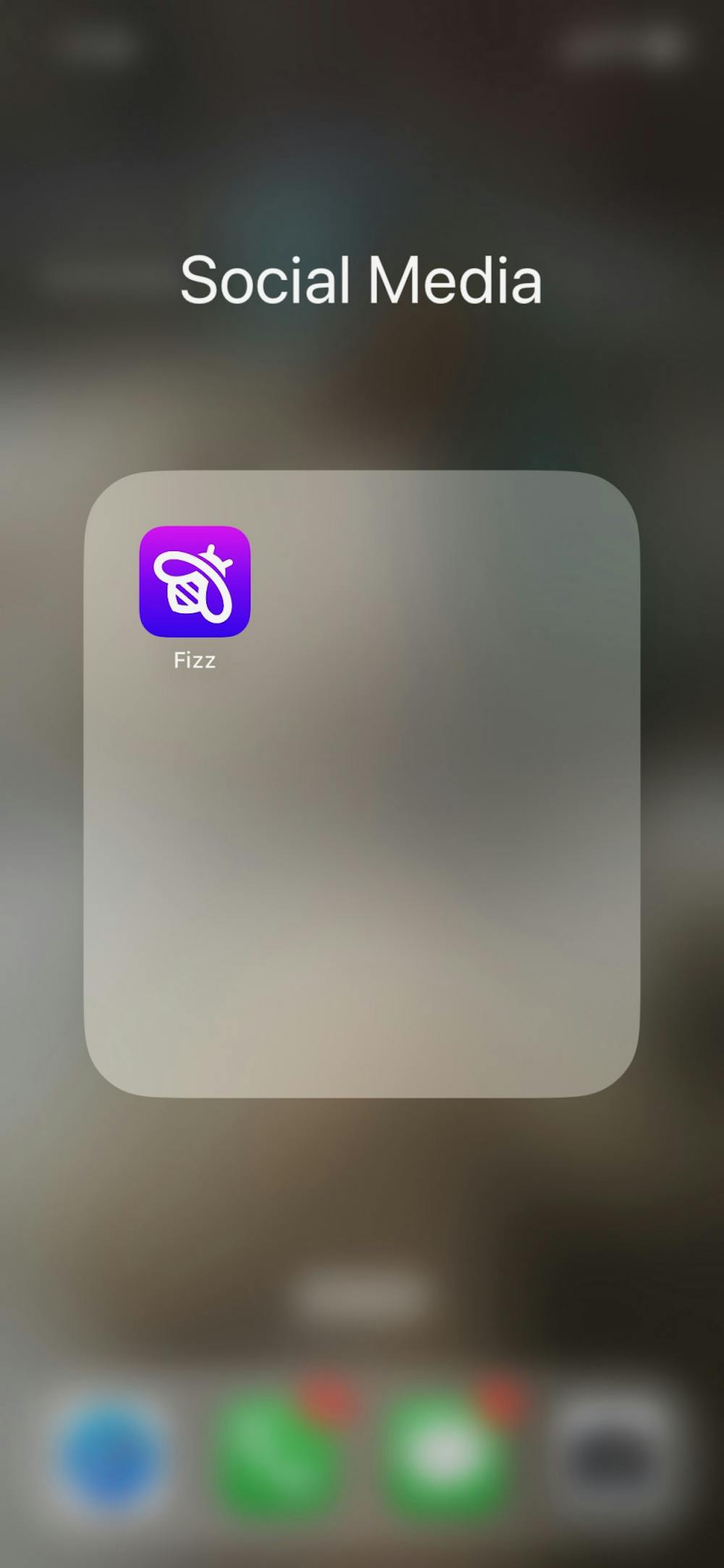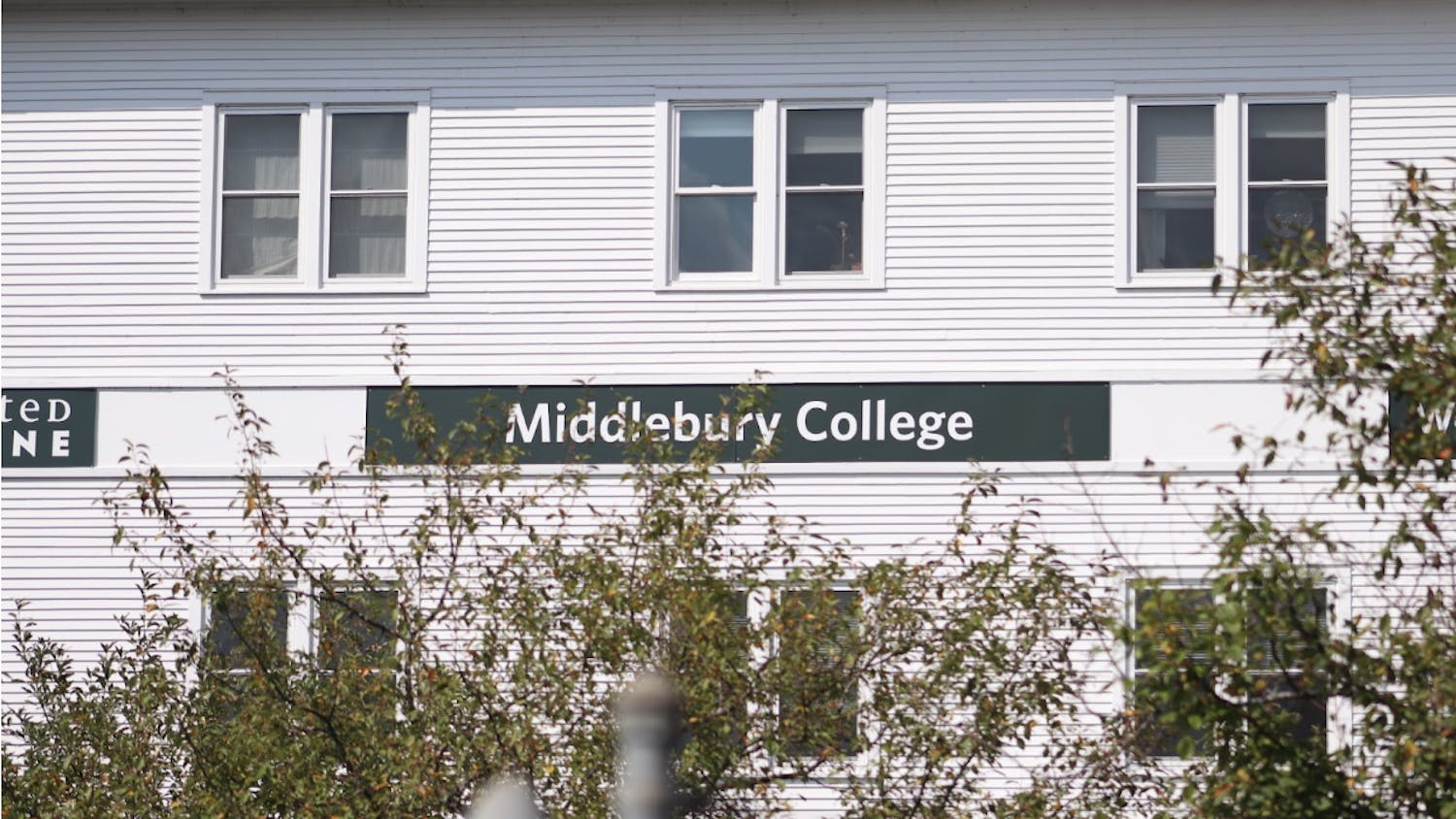From @middconfessions to Yik Yak, anonymous social media platforms have historically found an audience among Middlebury students. Now, there is a new app that claims to offer a more exclusive and safer alternative to less regulated platforms. Fizz, created by two Stanford University students in 2020, creates an online anonymous platform that is exclusive to a campus community, as users are required to register with their college email.
Fizz’s Middlebury platform launched on Jan. 5, and the company paid several students to market the app around campus. Benji Sindell ’26 was recruited on LinkedIn by a Fizz employee to lead the on-campus marketing of the app. He says he was paid $400 for about four hours of work, which included recruiting eight of his friends to help advertise the launch. Sindell also noted that students he recruited to help were paid $100, and students were paid $15 to repost an advertisement on their Instagram stories.
“They advertise as a social media app that is better because it's exclusive to students at Middlebury. They also claim it is more regulated, less random and more safe in general, and the fact that it's more intimate,” Sindell said. According to Sindell, who uses the app himself, these claims are “mostly true.”
Two weeks since launching, the app seems to have found an audience, with many posts garnering hundreds of upvotes. This is more, on average, than its competitor Yik Yak, a similar anonymous social media app that became popular on campus over the past few years. But, while Yik Yak also allows users to post anonymously and up- or down-vote their peers' posts, the posts users see in their feed are based on location, not academic affiliation. Anyone within a five-mile radius can access the same feed, and there is little moderation of posts.
Unlike its competitors, Fizz hires on-campus moderators that both monitor and create content on the app.
“There are students right now on the app getting paid $500 a month, and I think they have to make 15 posts a day,” Sindell said. Sindell estimates there are 10 to 15 moderators at Middlebury, and The Campus was able to identify at least three.
One of the Fizz moderators told The Campus that they could not comment as they have all signed non-disclosure agreements with Fizz. In October, the student newspaper of the Claremont Colleges spoke to a student moderator who was paid to post 30 to 40 times a day on the app.
The use of moderators may make some of the content look somewhat artificial to users.
“I don’t really like the app because it seems like there are a ton of bots that upvote posts really quickly sometimes… I’ve also heard a ton of rumors that there aren’t that many users, and the moderators are paid to post a ton,” Skylar Diamandis ’23, a former user of the app, said.
Sindell had similar concerns but still enjoys the app.
“It’s not like Yik Yak where everything is genuine; there is some incentive in the posts, but I dont think it's a problem because [the posts] are still funny,” Sindell said in reference to the claim that moderators are paid to post content.
The app has been popular on other campuses, especially in college communities that would benefit from the exclusive nature of the app. The company claims that 95% of Stanford undergraduates and 70% of Rice University students have downloaded the app. Fizz has also been popular at Dartmouth College, while also prompting concerns about hate speech and bullying.
“They take a very non-traditional approach to advertising on campus, and they told me it's easier at bigger schools where people are less concerned about people advertising stuff or people phishing for information,” Sindell said. Sindell also noted that Fizz asked permission to have their own employees do the on-campus marketing, but the college denied their request.
When a new user downloads the app, Fizz notifies them that they are not affiliated with their school, that users are always anonymous and that nothing posted will be linked back to their institution. Last November, Stanford students accused Fizz of failing to follow through on their promises of total anonymity for users after they were able to hack the app and found that phone numbers and email addresses were accessible and posts and upvotes were directly linkable to identifiable information.
The success of Fizz’s attempt to censor hate speech, something that Yik Yak has historically had issues with at Middlebury, has been unclear. “You will still find weird stuff, and if you look hard enough you’ll find hate speech, but it’s way less obvious than Yik Yak,” Sindell said.
Nima Khodakhah ’25, who worked with Sindell to market the app, has mixed feelings about the app. “I downloaded it as a joke, and there is some weird stuff on it, but it is funny, and I enjoyed it, so I was surprised,” Khodakhah said.

Lily Jones ’23 is an online editor and senior writer.
She previously served as a Senior News Writer and SGA Correspondent.
Jones is double majoring in Philosophy and Political Science. She also is an intern for the Rohatyn Center for Global Affairs and on the ultimate frisbee team.




